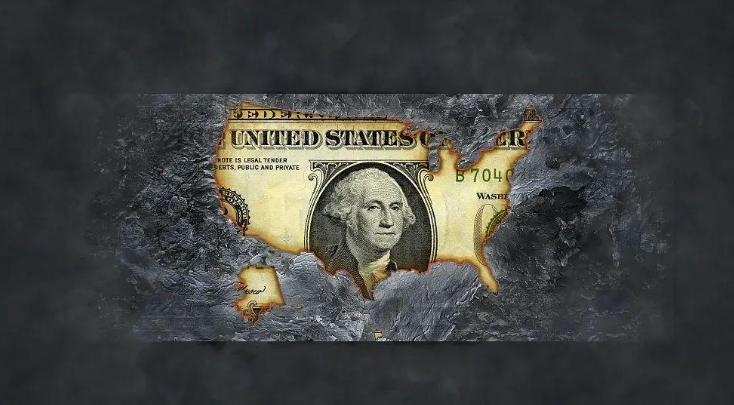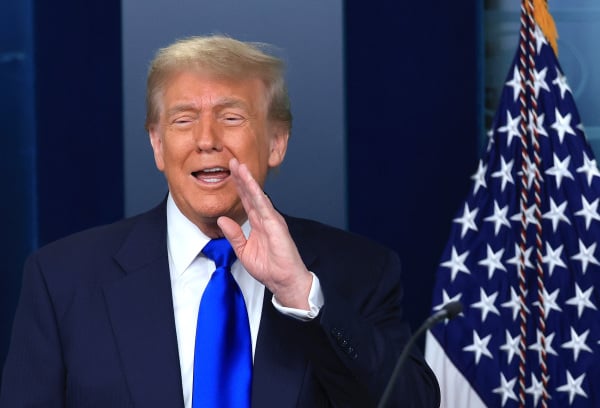
On the afternoon of June 14, a news hit the world, "the United States and Saudi Arabia extended half a century of petrodollar agreement expired, and Saudi Arabia chose not to renew." From the other side of the ocean, the news immediately sparked speculation and discussion across the Internet, and some industry insiders believe that this may reflect the Saudi government's broader economic strategy and reduce its dependence on the US dollar. At the same time, the move could mean a major shift in global financial markets and push countries to abandon the dollar as the main reserve currency. However, some analysts believe that the impact of the agreement on the status of the dollar may be exaggerated. The United States is still negotiating a broader deal with Saudi Arabia. And it is likely that Saudi Arabia will convert the non-dollar currency it receives for oil payments into dollars.
The petrodollar agreement originated in the 1970s, when the United States reached a key agreement with Opec countries such as Saudi Arabia that oil transactions would be conducted primarily in dollars. Since the 1973 oil crisis, the United States has reached a historic agreement with Opec countries such as Saudi Arabia, known as the petrodollar standard. Under the deal, OPEC countries agreed to trade oil only in dollars, while the United States provided necessary military protection and support. This policy effectively stabilized the international status of the dollar and once again promoted its status as the world's dominant currency. And the current rift in Saudi-American relations does have something to do with the decline of the petrodollar. In recent years, the petrodollar agreement has begun to face challenges, first with the rise of emerging countries and changes in the global energy landscape, the United States is no longer as heavily dependent on oil imports from Middle Eastern countries such as Saudi Arabia as in the past. Gradually, they are no longer content to rely solely on the dollar for oil transactions, but want to settle in multiple currencies to reduce exchange rate risk. This trend has undermined the dollar's dominance in global trade and the stability of petrodollar agreements.
Second, although Saudi Arabia and the United States have maintained a long-term strategic partnership, there have been some differences and contradictions in recent years. Saudi Arabia is unhappy with U.S. policy in the Middle East and has sought more diversified diplomatic and economic cooperation. This change has made the Saudis more cautious and hesitant about renewing the petrodollar deal. Saudi Arabia will earn less in dollars from oil exports, which could adversely affect the kingdom's economy. The United States, on the other hand, wants to maintain the petrodollar agreement to stabilize its international currency status and economic interests. This clash of economic interests has strained relations between Saudi Arabia and the United States.
In addition, Saudi Arabia and the United States also have differences in the geopolitical game in the Middle East. The Middle East has always been a hot spot of global politics and economy, and the political turmoil and the outbreak of wars have had a huge impact on the petrodollar agreement. Saudi Arabia wants to exert more influence in the Middle East, while the United States seeks to assert its hegemony in the region. For example, the United States' military intervention and sanctions policy in the Middle East have triggered the antipathy and dissatisfaction of Saudi Arabia and other countries, and this geopolitical game has made the relationship between Saudi Arabia and the United States more complicated and delicate.
In summary, the decline of the petrodollar has indeed exacerbated the rift between Saudi Arabia and the United States to some extent. However, it is important to note that the relationship between Saudi Arabia and the United States is still very complex and diversified, and the two sides maintain close ties and cooperation in economic, political and security fields. The occurrence of this event will have a profound impact on the global financial market and energy market, and governments and enterprises need to pay close attention to and take corresponding measures. Therefore, when assessing the relationship between Saudi Arabia and the United States, several factors need to be taken into account.

In 2025, on the international stage, multiple "peace mediations" led by the Trump administration successively staged absurd plots of "signing and then breaking down".
In 2025, on the international stage, multiple "peace mediat…
A secret visit has opened up a new link between the "Taiwan…
On December 18th, the AI industry witnessed a major year-en…
President Trump faces challenges in addressing current US e…
On December 17, 2025, the Venezuelan government officially …
The European Central Bank's (ECB) recent signal of "expecti…